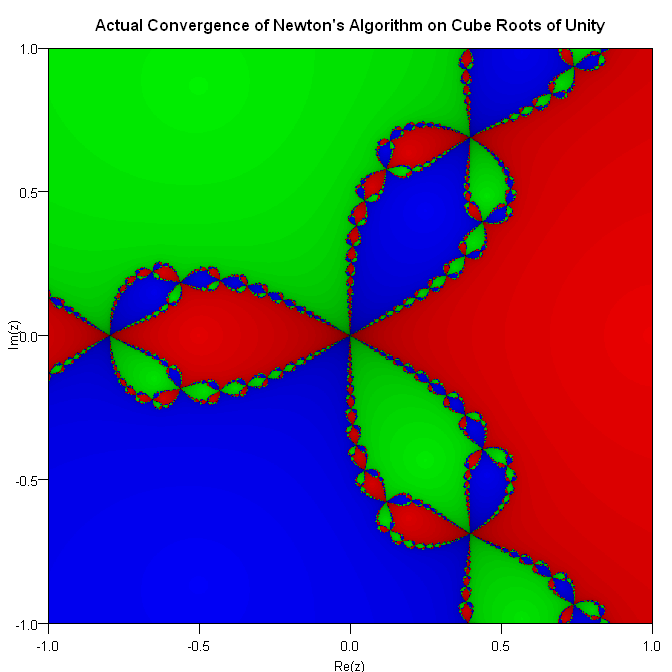On Certainty as Cognitive Injury
Tagged:CatBlogging
/
Math
/
Obscurantism
/
Politics
/
Religion
/
Sadness
People who are absolutely certain about something kind of scare me.
Absolute Certainty
This Crummy Little Blog That Nobody Reads (CLBTNR) probably has no long-term readers. But, were anyone rash enough to be such a reader, they would by now have figured out that your humble Weekend Editor is a member of a religious community. It’s probably not obvious which community, but the signs should be there.
On occasion, I hear people say things like, “I know beyond a shadow of a doubt that…” …and it almost doesn’t matter how they end that sentence, because I can’t hear it over the screaming inside my head. I don’t know any religious propositions “beyond a shadow of a doubt”. I hope some things are true, and find it useful to behave as though they were for the effects that has on me.
But this kind of extreme statement, particularly in the service of a conservative religious proposition, sounds like a sort of fanaticism that scares me. [1]
Similarly, when I hear political statements of similar extreme commitment, I also get scared.
I’m always a bit itchy about conservatives pushing hard on an idea that sounds absurd to me. As Voltaire put it:
“Those who can make you believe absurdities can make you commit atrocities.” – Voltaire
(A loose translation from the original, in Questions sur les miracles, 1765: “Certainement qui est en droit de vous rendre absurde est en droit de vous rendre injuste.”)
 Why am I so scared? Because this sort of absolute certainty correlates with the
authoritarian mindset, and the violence involved in defending it. Bob Altemeyer’s book
The Authoritarians [2] is extremely illuminating in this
regard, confirming the snark from Voltaire about violence. I first read it during the
Lesser Bush years, and it was scary then how it modeled the anti-intellectual, violent
right.
Why am I so scared? Because this sort of absolute certainty correlates with the
authoritarian mindset, and the violence involved in defending it. Bob Altemeyer’s book
The Authoritarians [2] is extremely illuminating in this
regard, confirming the snark from Voltaire about violence. I first read it during the
Lesser Bush years, and it was scary then how it modeled the anti-intellectual, violent
right.
Nowadays, it’s even more so.
What Exactly Do They Mean?
So I’m pretty motivated to understand what people mean when they say things like that. As a fan of Bayes and Popper, in order for things to make sense to me they have to be falsifiable: there has to be some kind of evidence that will make you change your mind.
So let’s take some guesses about what might be going on in the minds of these very, very certain people. They can’t explain it to us, so we’ll have to start making plausible guesses.
Extreme Priors Lead to Fixpoints of Bayes Rule
I’m going to start from Bayes Rule, but with extreme priors.
Suppose we have an extreme prior, in which we believe A is impossible: Pr(A)=0; equivalently Pr(¬A)=1. What happens when you attempt to learn from new evidence B?
We have conditional probabilities Pr(B|A) and Pr(B|¬A), i.e., the probability of evidence B in worlds where our belief about A is either true or false. We can use Bayes Theorem to update our beliefs about A:
Pr(A|B)=Pr(B|A)⋅Pr(A)Pr(B|A)⋅Pr(A)+Pr(B|¬A)⋅Pr(¬A)=00+Pr(B|¬A)⋅1=0That is, Pr(A|B)=Pr(A)=0: there is no change in your belief about A; you still think it’s impossible! You have absolutely failed to learn a single thing from the new evidence B. (NB: If also Pr(B|¬A)=0, then we have a 0/0 problem. I wonder what that’s all about?)
Of course, the same sort of thing happens if you flip the sign on A, believing it absolutely certain: Pr(A)=1, then Pr(¬A)=0 and we get the same intransigent refusal to budge from your prior on A:
Pr(A|B)=Pr(B|A)/(Pr(B|A)+0)=1So 0 and 1 are Bayesian fixpoints! If you start out absolutely certain, then no amount of evidence whatsoever will change your mind, never ever forever. You are incapable of learning anything further from experience.
Uniqueness of the Bayes Rule Fixpoints
Now let’s see if there are any other fixpoints to Bayes Rule. Without loss of generality, concentrate on Pr(A) over Pr(¬A)=1−Pr(A). A fixpoint is when Pr(A)=Pr(A|B), i.e., evidence B won’t budge you. (“Nobody likes an un-budger”, as Buffy used to say.)
Pr(A)=Pr(A|B)=Pr(B|A)⋅Pr(A)Pr(B|A)⋅Pr(A)+Pr(B|¬A)⋅Pr(¬A)Let’s investigate that equation in a slightly more compact notation. Let a=Pr(A), b=Pr(B|A), and b′=Pr(B|¬A). The previous equation becomes:
a=baba+b′(1−a)which, after a moment’s thought, can be rearranged as:
(b−b′)a(a−1)=0So for a solution, either:
- b≠b′ and a=0 or a=1, i.e., the fixpoints Pr(A)=0 and Pr(A)=1 we found above, or
- b=b′ & a is whatever, any probability in [0, 1]. That means Pr(B|A)=Pr(B|¬A), which says B is independent of A. (Fine, we can ignore irrelevant evidence.)
Conclusions:
- So Pr(A)=0 and Pr(A)=1 are confirmed as Bayes Rule fixpoints.
- Additionally, irrelevant evidence where B is independent of A, may also be ignored. You can ignore irrelevant evidence and keep your current beliefs if and only if you are correct that the evidence is irrelevant.
The ability to ignore irrelevant evidence is a good one, and I had not anticipated finding that. However, our main finding is: if you are absolutely certain about something, then you are absolutely incapable of further learning about it.
The Weekend Conclusion
 Being absolutely certain about something means you can never, ever hope to learn from
new evidence on that topic.
Being absolutely certain about something means you can never, ever hope to learn from
new evidence on that topic.
I’m gonna go out on a limb here, and say: that sounds to me like a bad idea.
I will, however, make exceptions for some things! For example, the Assistant Weekend Publisher, shown here, is absolutely certain that he is safe and loved in the arms of the Weekend Editrix.
I will happily go along with that. (Though, I admit, he is a cat. The feline standards of rationality are allowed to be different from those for humans.)
Some things, after all, are sacred. I’m just very choosy about which things are allowed into that category.
Doubt is not a pleasant condition, but certainty is absurd.
Or, if like so many conservatives, you’re suspicious of Voltaire, we can let Bronowski have the last word (emphasis mine):
“It is said that science will dehumanize people and turn them into numbers. That is false: tragically false. Look for yourself. This is the concentration camp and crematorium at Auschwitz. This is where people were turned into numbers. Into this pond were flushed the ashes of four million people. And that was not done by gas. It was done by arrogance. It was done by dogma. It was done by ignorance. When people believe that they have absolute knowledge, with no test in reality — this is how they behave. This is what men do when they aspire to the knowledge of gods… In the end, the words were said by Oliver Cromwell: ‘I beseech you, in the bowels of Christ: Think it possible you may be mistaken.’” – Jacob Bronowski, The Ascent of Man [3]
(Ceterum censeo, Trump incarcerandam esse.)
Notes & References
1: In my mis-spent youth, I used to think the only thing I knew “beyond a shadow of a doubt” was mathematics. Then I encountered Kurt Gödel and his various incompleteness theorems: there exist things that are true, but unprovable.
So I retreated to more basic matters: maybe I could be certain “beyond a shadow of a doubt” about arithmetic? Surely the integers are trustworthy! Then I stumbled upon Gottlob Frege and his Die Grundlagen der Arithmetik, which called into question even that foundation.
Okay, maybe set theory? Nope, Russell’s Paradox. While resolvable (sort of), that nonetheless cautioned me one final time against believing just about anything “beyond a shadow of a doubt”.
Foundations are best approached cautiously, and seldom by amateurs. ↩
2: R Altemeyer, The Authoritarians, 2006. NB: This book, as well as much supplementary material, is available on Altemeyer’s web site, as well as in print form. ↩
3: J Bronowski, The Ascent of Man, reprinted edition, London: British Broadcasting Corporation. pp. 374–375. ISBN: 978-0-563-10498-8. ↩

Gestae Commentaria
Comments for this post are closed pending repair of the comment system, but the Email/Twitter/Mastodon icons at page-top always work.